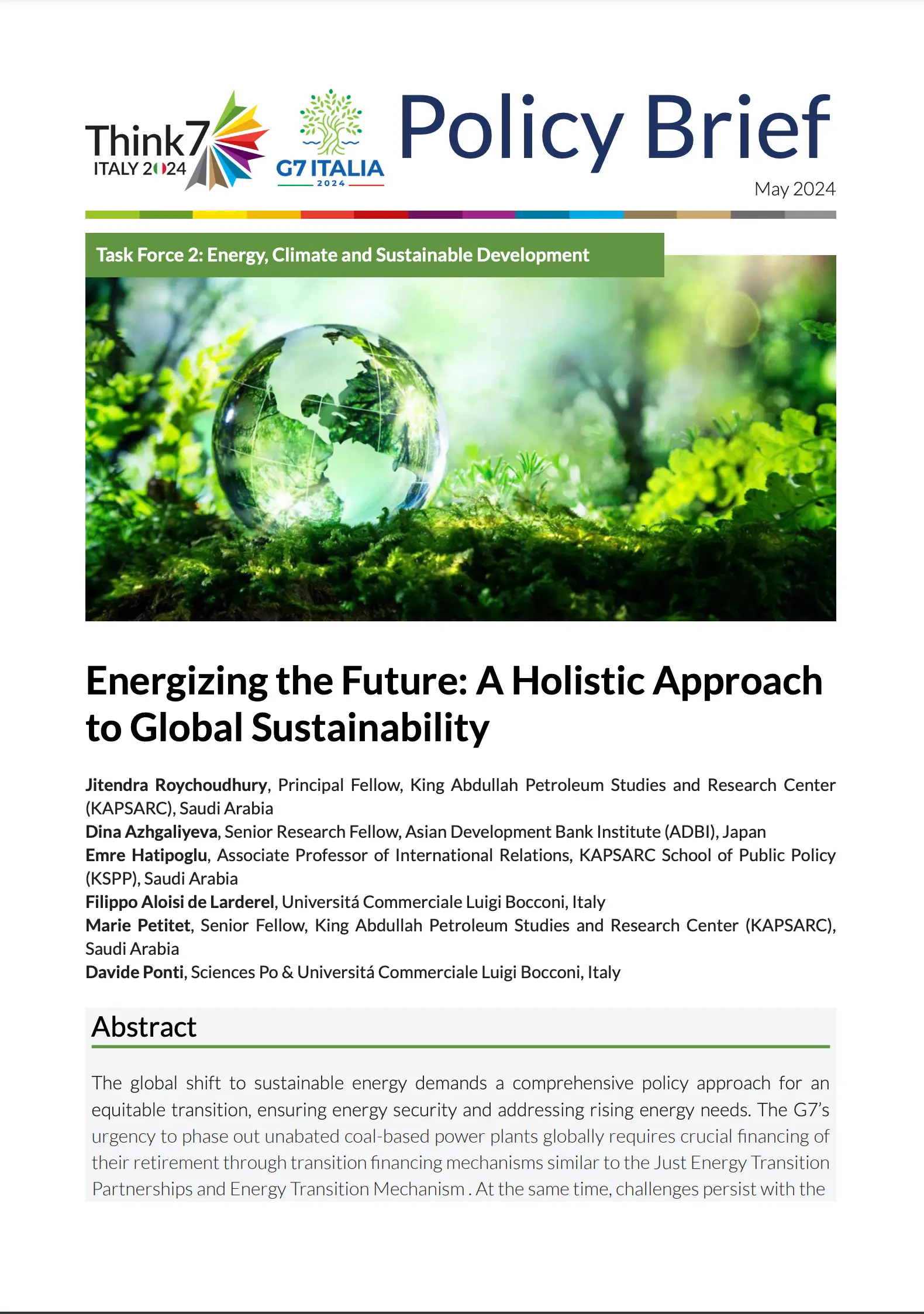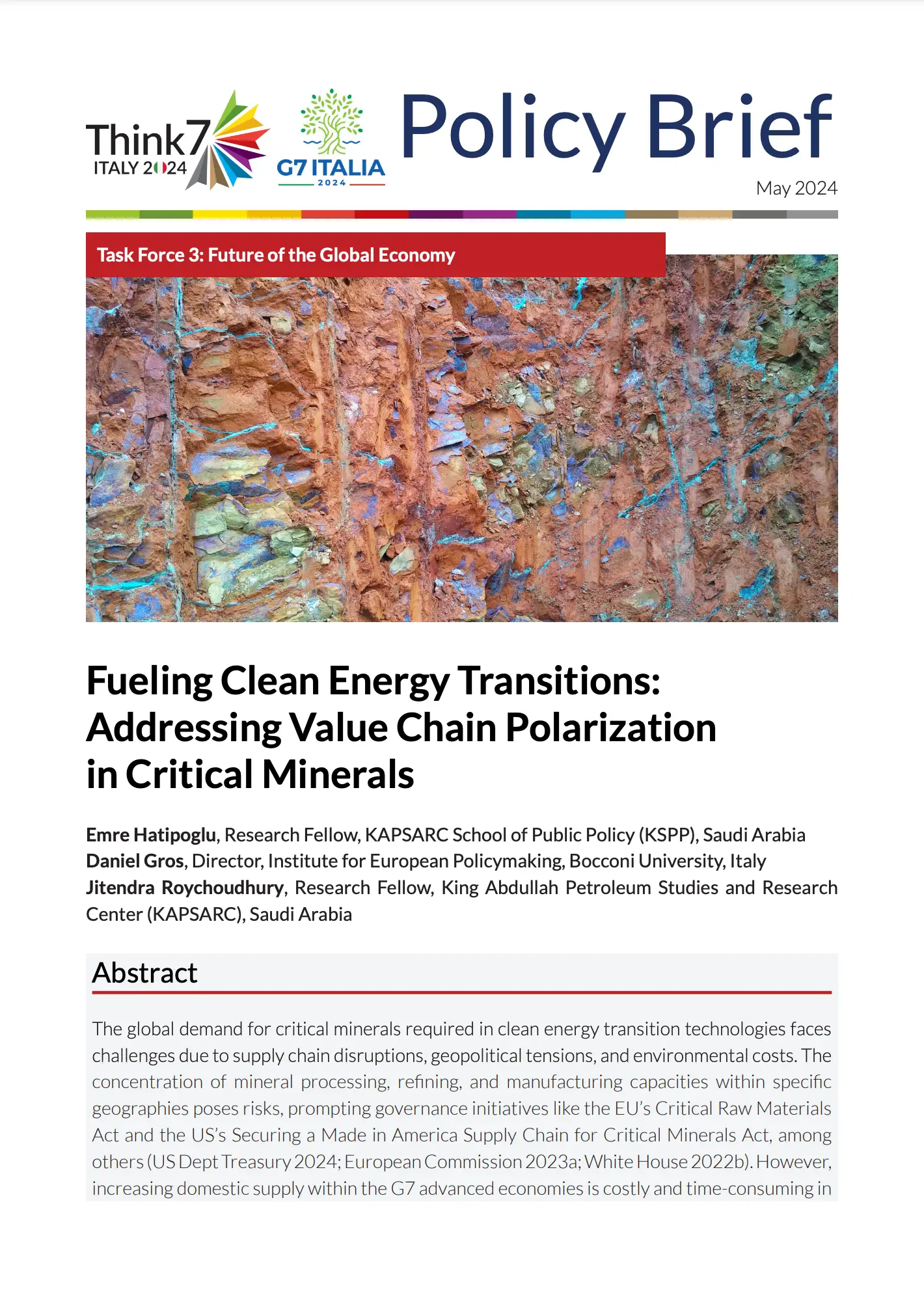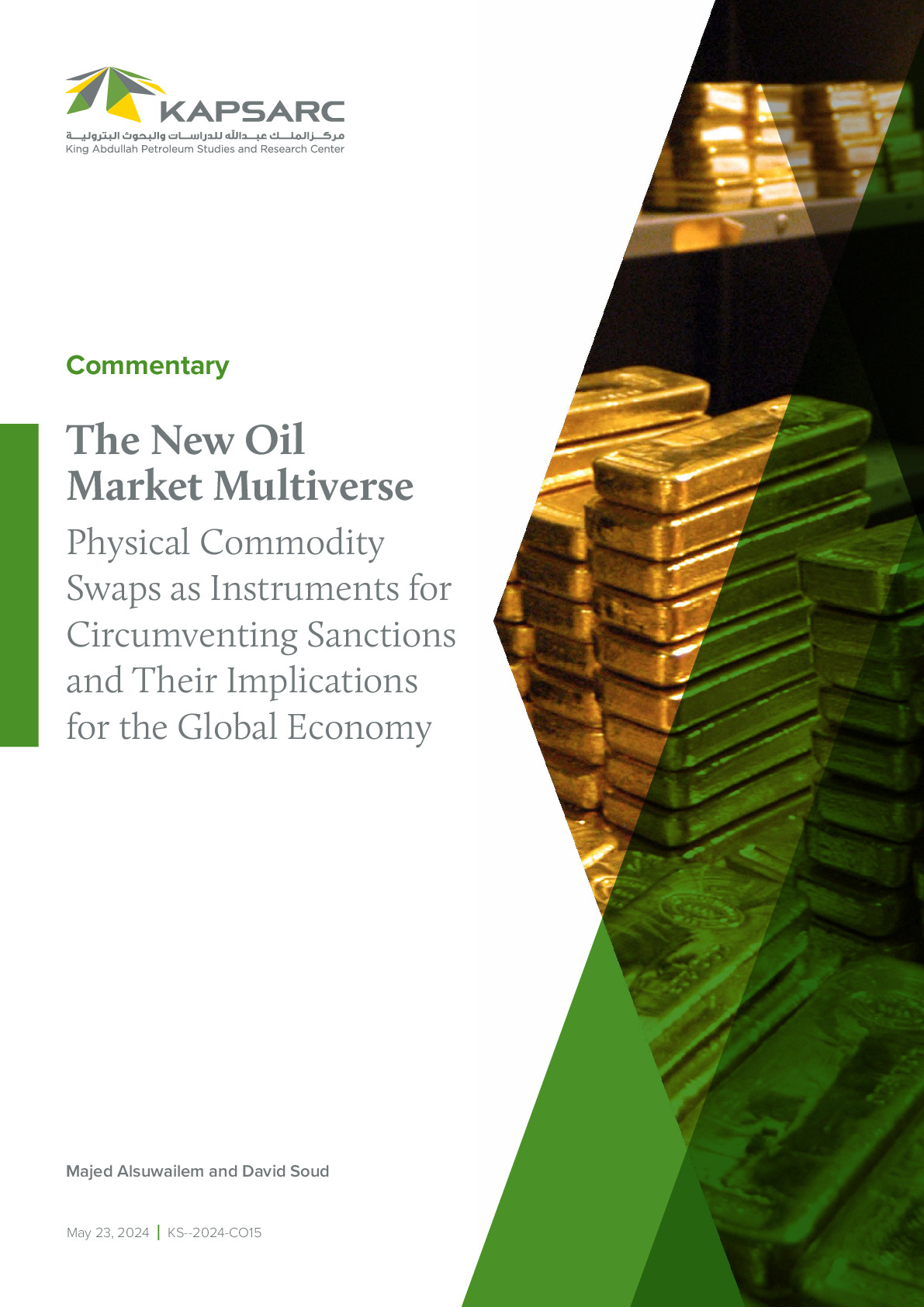In late March 2021, China and Iran signed a cooperation pact to stimulate investments in Iran’s oil, gas and petrochemical infrastructure. We refer to this pact as the ‘Iran-China deal’ throughout this manuscript. This deal attracted substantial attention for its effects on global oil markets and the geopolitics of the region. Reports suggest that China may invest as much as $400 billion in Iran’s infrastructure and oil sector over 25 years owing to the deal. In exchange, Iran will supply oil to China at below-market prices.

Research Fellow
Emre Hatipoglu is a fellow in the Oil and Gas program and leads the research project Energy Markets and Geopolitics.…
Emre Hatipoglu is a fellow in the Oil and Gas program and leads the research project Energy Markets and Geopolitics. In this project, Dr. Hatipoglu and his colleagues assess how political events (e.g., international conflict, economic sanctions, international treaties) and global energy markets interact. Prior to KAPSARC, Dr. Hatipoglu was associate professor at the Faculty of Arts and Social Sciences at Sabanci University in Istanbul and a a visiting Fulbrighter during the 2017-2018 academic year at Columbia University. He also served on the advisory board of Sakip Sabanci Center for Turkish Studies at Columbia University between 2016-2018. Dr. Hatipoglu’s work has been published in various scientific journals, such as the Journal of Politics, Energy Research and Social Science, Energy Reports, Foreign Policy Analysis, the Journal of Commodity Markets, and Defence and Peace Economics, among others. He is the editor-in-chief of the journal Energy Transitions, and serves on the editorial board of the International Studies Review.
Expertise
- Geopolitics
- Economic Sanctions and International Politics of Energy Trade
Publications See all Emre Hatipoglu’s publications

Energizing the Future: A Holistic Approach to Global Sustainability
In late March 2021, China and Iran signed a cooperation pact to stimulate investments in…
2nd June 2024
Fueling Clean Energy Transitions: Addressing Value Chain Polarization in Critical Minerals
In late March 2021, China and Iran signed a cooperation pact to stimulate investments in…
29th May 2024



